Dill is a versatile herb with a distinct flavor profile that combines citrus, grassy notes, and subtle anise undertones. This comprehensive guide answers the most searched questions about dill: what it tastes like, how to use it beyond pickling, the difference between fresh and dried varieties, and proper storage methods to maximize freshness.
What Is Dill and What Does It Taste Like?
Dill (Anethum graveolens) is an annual herb native to the Mediterranean and southern Russia, valued for its aromatic, feathery foliage. When people search "what does dill taste like," they're looking for this specific description: dill has a bright, grassy flavor with distinct citrus notes and a subtle hint of anise or licorice. Fresh dill offers a delicate, almost sweet taste, while dill seeds have a stronger, more pungent, caraway-like flavor. This flavor profile makes dill particularly compatible with fish, dairy, and light summer dishes, explaining why it's essential in Scandinavian gravlax and Greek tzatziki.
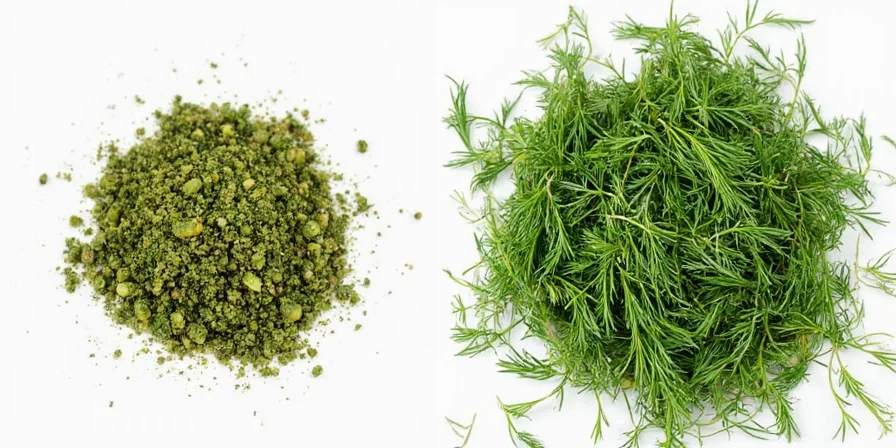
Fresh vs. Dried vs. Seed: Practical Differences You Need to Know
Understanding the differences between dill forms addresses the most common search query "fresh dill vs dried dill." This comparison helps home cooks make informed decisions for their recipes:
| Form | Flavor Profile | When to Use | Conversion Ratio |
|---|---|---|---|
| Fresh Dill | Delicate, grassy, citrus-forward | Finishing dishes, salads, sauces, garnishes | 1 tablespoon fresh = 1 teaspoon dried |
| Dried Dill | Muted, earthier, less citrus | Cooking into soups, stews, marinades | 1 teaspoon dried = 1 tablespoon fresh |
| Dill Seeds | Pungent, peppery, caraway-like | Pickling, breads, spice blends | 1 teaspoon seeds ≠ fresh/dried equivalents |
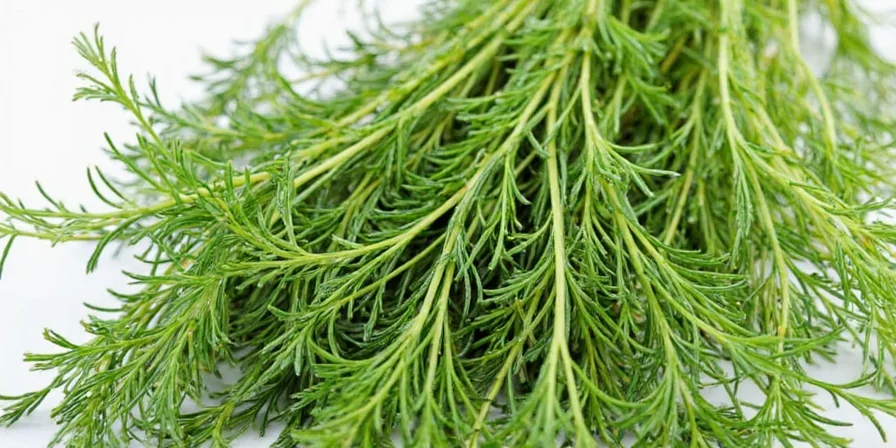
10 Practical Ways to Use Dill (Beyond Pickles)
When searching "how to use dill in cooking," these practical applications deliver maximum flavor impact:
- Instant Sauce Upgrade: Stir 1 tablespoon fresh dill into store-bought tartar sauce for fish dishes.
- Salmon Secret: Press fresh dill into salmon fillets before baking (better than dried for this application).
- Yogurt Transformation: Mix 2 tablespoons fresh dill into 1 cup Greek yogurt with lemon zest for instant dip.
- Quick Pickle Hack: Add dill seeds to store-bought pickle brine for authentic flavor.
- Butter Boost: Blend 3 tablespoons chopped dill into 4 ounces softened butter for seafood.
- Salad Revolution: Toss cucumber salad with fresh dill, red onion, and white wine vinegar.
- Dill Oil Method: Steep fresh dill in warm olive oil for 2 hours, then strain for finishing dishes.
- Herb Salt: Blend dried dill with sea salt for versatile seasoning.
- Roasted Vegetable Finish: Sprinkle fresh dill over potatoes after roasting.
- Cocktail Garnish: Use dill sprigs in gin and tonic for herbal complexity.
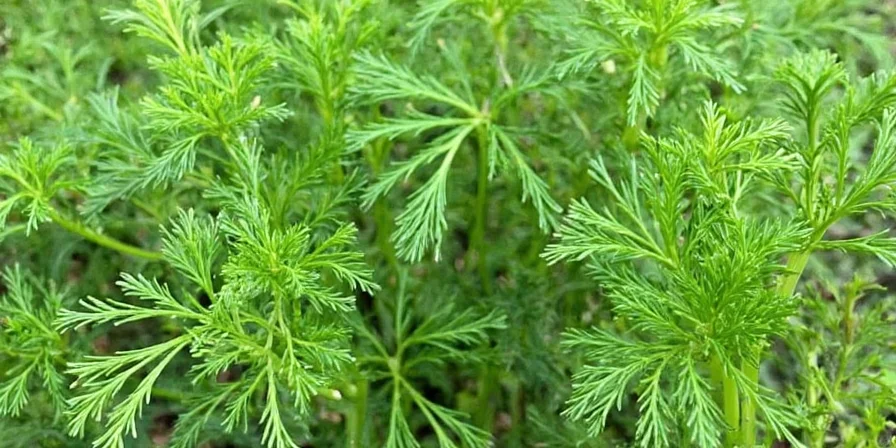
How to Store Dill Properly (What Google Searchers Really Want to Know)
The third most searched dill question is "how to store dill," with specific concerns about premature wilting. These methods deliver maximum freshness:
- Refrigerator Water Method (Best for 7-10 days): Place stems in 1 inch of water in a glass, cover loosely with plastic bag, change water every 2 days.
- Damp Paper Towel Method (Best for meal prep): Wrap in slightly damp paper towel, place in airtight container.
- Freezing for Cooking (Best long-term): Chop and freeze in ice cube trays with olive oil (not water) to preserve flavor.
- Never: Store dill in sealed plastic bags without air circulation or near ethylene-producing fruits.

3 Beginner-Friendly Dill Recipes (With Clear Measurements)
1. 5-Minute Dill Yogurt Sauce (What people actually search for)
- 1 cup Greek yogurt
- 2 tbsp fresh dill, finely chopped
- 1 tbsp lemon juice
- 1 small garlic clove, pressed
- ¼ tsp salt
Mix ingredients and refrigerate 30 minutes. Perfect for fish, vegetables, or as sandwich spread. Keeps 5 days.
2. Foolproof Pan-Seared Salmon with Dill
- 2 salmon fillets
- 1 tbsp olive oil
- 1 tbsp fresh dill, chopped
- ½ lemon, sliced
- Salt and pepper
Pat salmon dry, season with salt and pepper. Heat oil in skillet over medium-high. Cook salmon 5-6 minutes per side. Transfer to plate, top with fresh dill and lemon slices.
3. Quick Refrigerator Pickles (Not traditional fermented)
- 2 cucumbers, sliced
- 1 cup white vinegar
- 1 cup water
- 1 tbsp dill seeds
- 2 garlic cloves, smashed
- 1 tsp salt
Combine vinegar, water, salt in saucepan and heat until salt dissolves. Pour over cucumbers, garlic, and dill seeds in jar. Cool to room temperature, refrigerate. Ready in 24 hours.
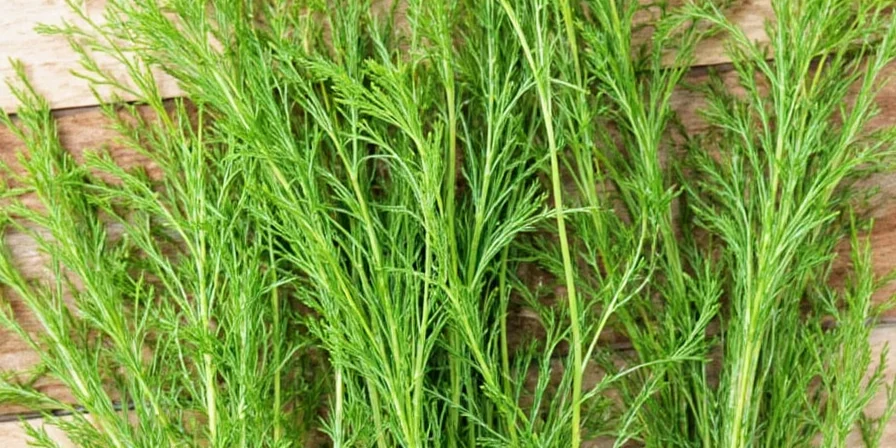
Answering Your Most Searched Dill Questions
What does dill taste like compared to other herbs?
Dill has a unique flavor profile—brighter than parsley, less sharp than cilantro, with citrus notes similar to basil but with subtle anise undertones. It's often confused with fennel, but fennel is significantly sweeter and more licorice-forward.
Can I substitute dried dill for fresh in recipes?
Yes, but with important caveats: use 1 teaspoon dried dill for every 1 tablespoon fresh. Dried dill works best in cooked dishes (soups, stews) but lacks the bright finish of fresh dill for garnishes and cold dishes.
Why does my dill always go bad so quickly?
Dill wilts rapidly when stored improperly. The solution: treat it like flowers. Keep stems in water in the refrigerator (like a bouquet) with a loose plastic cover. Change water every 2 days. Never store dill in sealed plastic bags without moisture control.
What are the best dishes to use dill with?
Dill shines with fish (especially salmon), potatoes, cucumbers, eggs, yogurt, and light summer vegetables. It complements lemon, garlic, and olive oil beautifully. Avoid pairing with strong spices like cumin or curry powder that will overpower its delicate flavor.
Do dill seeds taste like fresh dill?
No—this is a common misconception. Dill seeds have a completely different flavor: more pungent, slightly bitter, with caraway-like notes. They're essential for traditional pickling but shouldn't be substituted for fresh dill in recipes.

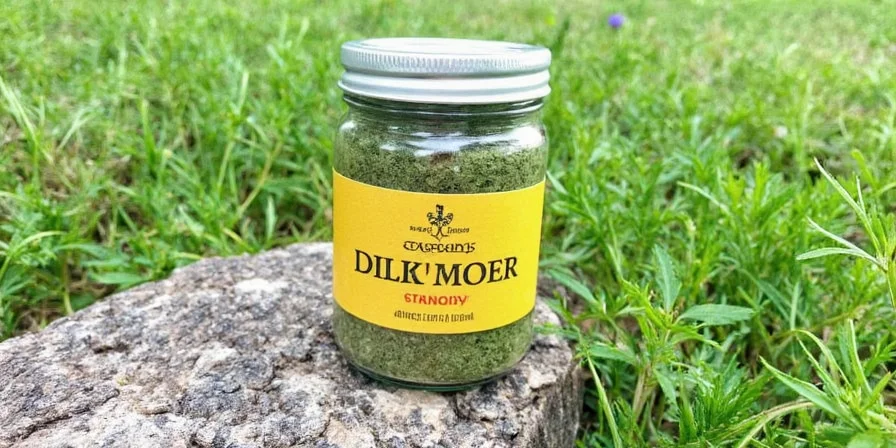









 浙公网安备
33010002000092号
浙公网安备
33010002000092号 浙B2-20120091-4
浙B2-20120091-4